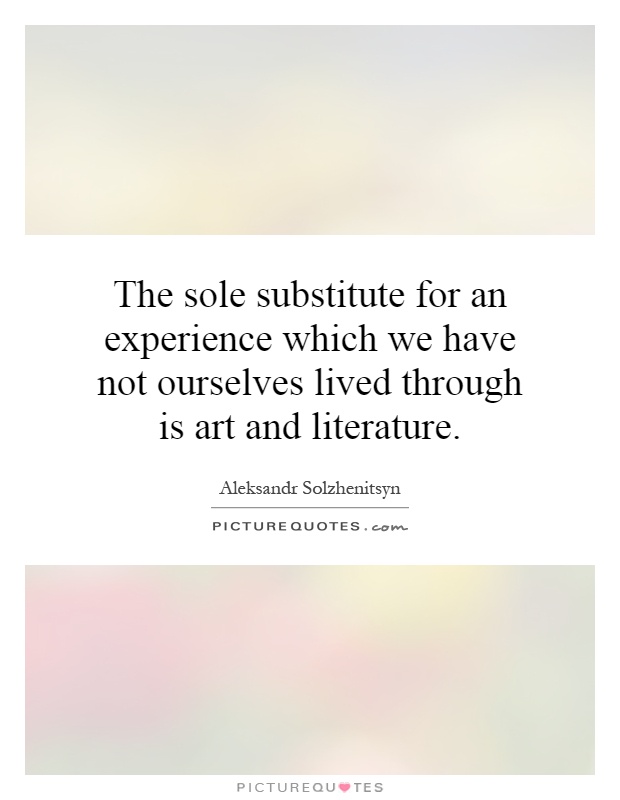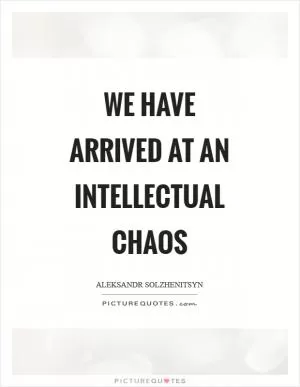The sole substitute for an experience which we have not ourselves lived through is art and literature

The sole substitute for an experience which we have not ourselves lived through is art and literature
Aleksandr Solzhenitsyn, the renowned Russian writer and Nobel laureate, is a prime example of how art and literature can serve as a substitute for experiences that we have not lived through ourselves. Solzhenitsyn's works, particularly his masterpiece "The Gulag Archipelago," provide a vivid and harrowing account of life in the Soviet labor camps, a world that most of us can only imagine.Born in 1918, Solzhenitsyn experienced firsthand the horrors of the Soviet regime, having been imprisoned in the Gulag for his criticism of Stalin's government. His time in the labor camps shaped his writing and his worldview, and he became a powerful voice for the millions of victims of Soviet oppression.
Through his novels, essays, and speeches, Solzhenitsyn brought to light the brutal realities of life under communism, exposing the injustices and atrocities committed by the Soviet authorities. His works are not just literary masterpieces, but also powerful testimonies to the resilience of the human spirit in the face of unimaginable suffering.
For those of us who have not lived through the horrors of the Gulag, Solzhenitsyn's writings offer a glimpse into a world that is both terrifying and enlightening. His ability to capture the essence of human suffering and resilience through his words is a testament to the power of art and literature to convey experiences that are beyond our own.
In a sense, Solzhenitsyn's works serve as a substitute for the experiences of the Gulag, allowing us to empathize with the victims and understand the depths of human cruelty and endurance. Through his writing, we are able to connect with the past and learn from the mistakes of history, ensuring that the horrors of the Gulag are never forgotten.












 Friendship Quotes
Friendship Quotes Love Quotes
Love Quotes Life Quotes
Life Quotes Funny Quotes
Funny Quotes Motivational Quotes
Motivational Quotes Inspirational Quotes
Inspirational Quotes